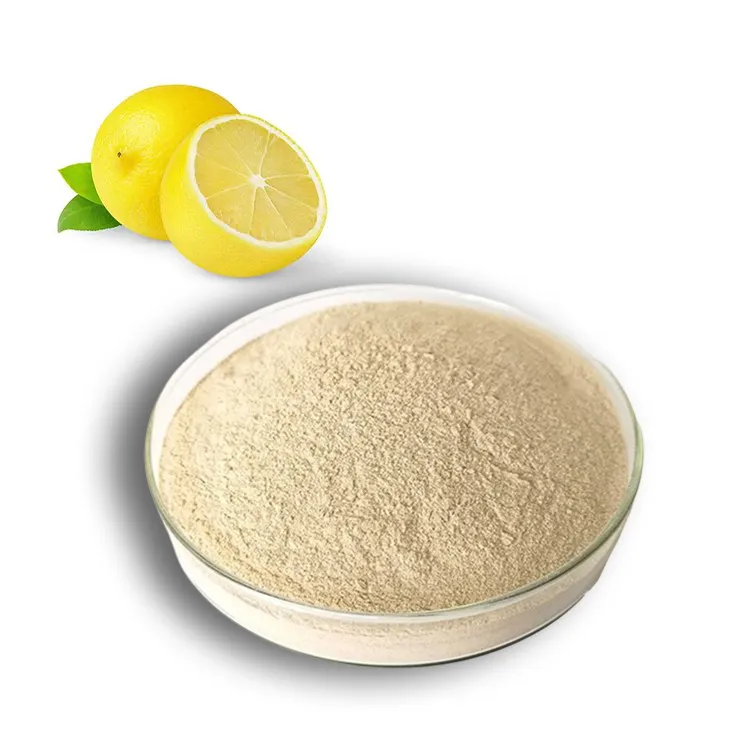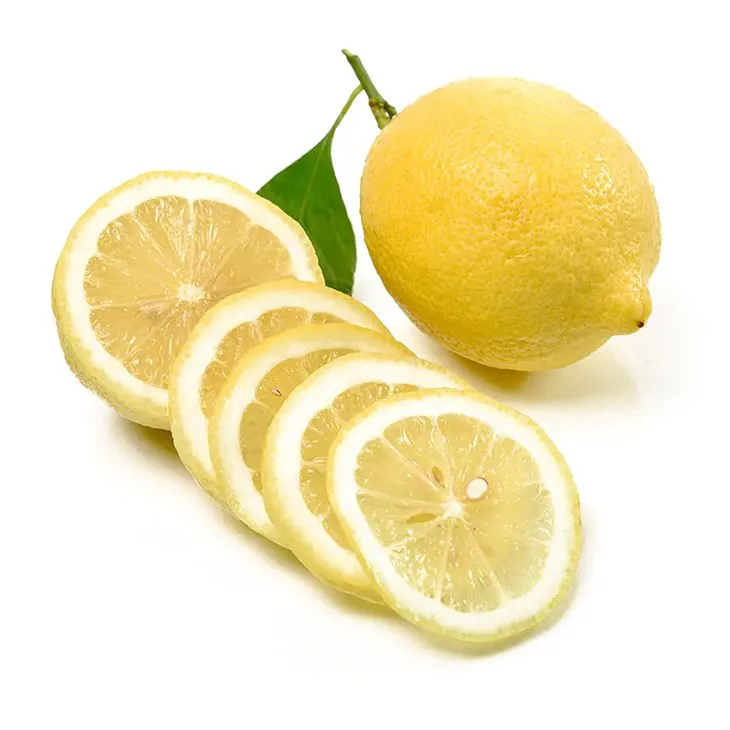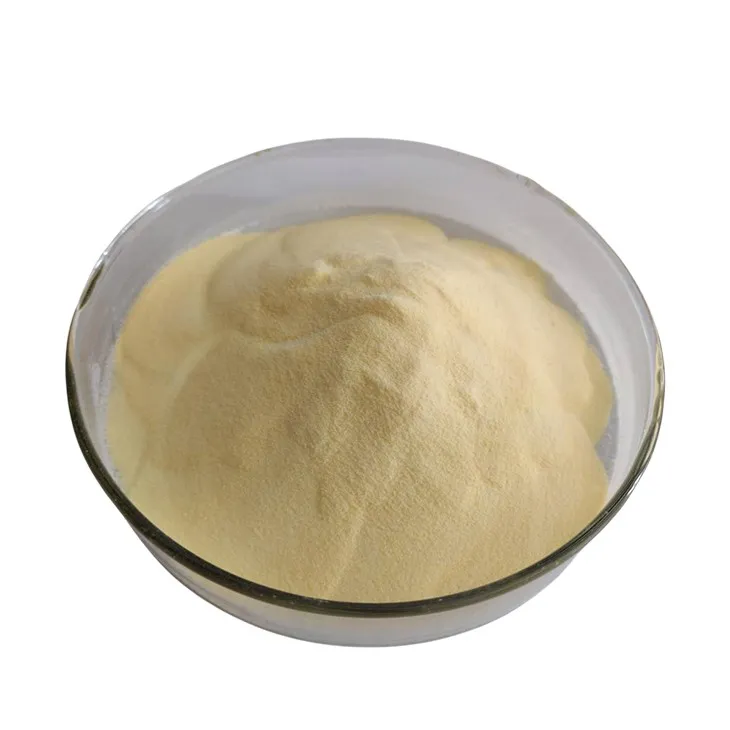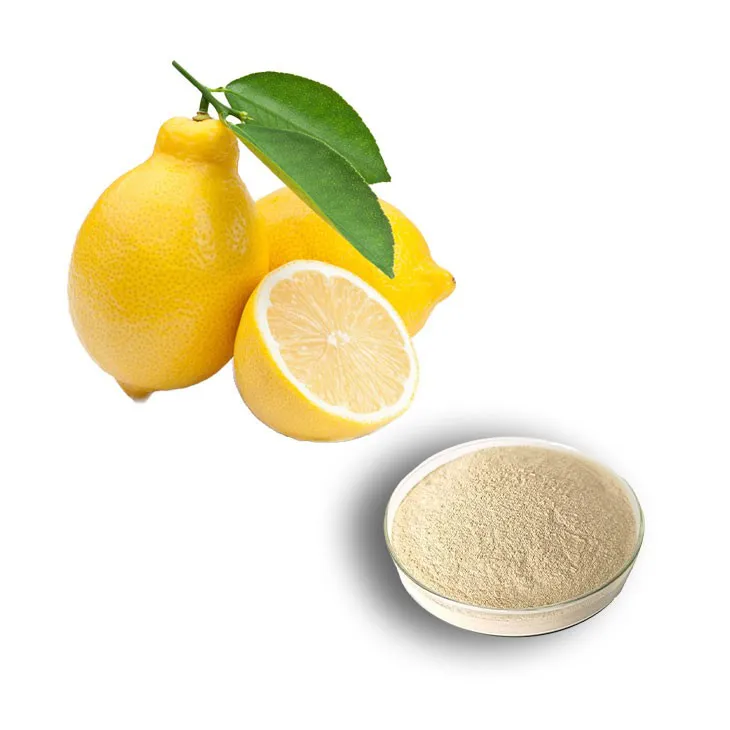- 0086-571-85302990
- sales@greenskybio.com
The Best Sources of Natural Lemon Extracts.
2024-11-29

Introduction
Natural Lemon Extract is highly valued in various industries, including the food, beverage, and cosmetic sectors. It imparts a refreshing lemon flavor and aroma, as well as potentially offering numerous health benefits. However, to obtain high - quality Lemon Extract, it is essential to consider the source. In this article, we will explore the best sources of natural Lemon Extracts, including whole lemons, lemon by - products, and organically - grown lemons.

Whole Lemons as a Source
1. Nutrient - Rich Profile
Whole lemons are an excellent source of natural lemon extract. They contain a comprehensive range of nutrients that contribute to the quality of the extract. Lemons are rich in vitamin C, which is well - known for its antioxidant properties. This vitamin not only helps in protecting the body against free radicals but also plays a role in enhancing the flavor and stability of the lemon extract. Additionally, lemons contain other vitamins such as vitamin B6, folate, and minerals like potassium and calcium. These nutrients can add complexity and depth to the flavor profile of the extract.
2. Flavor and Aroma
The peel, pulp, and juice of the whole lemon all contribute to its unique flavor and aroma. The essential oils present in the lemon peel are a major source of the characteristic lemon scent. When extracting from whole lemons, these oils are captured along with the juice, resulting in a more well - rounded and intense lemon extract. The pulp also adds a certain thickness and body to the extract, making it more suitable for use in products where a more substantial texture is desired, such as in some food and beverage applications.
3. Extraction Methods
There are several methods for extracting from whole lemons. One common method is cold - pressing, which involves mechanically squeezing the lemons to obtain the juice and some of the essential oils. This method is preferred as it preserves the natural flavor and nutrients of the lemon as much as possible. Another method is steam distillation, which is mainly used to extract the essential oils from the lemon peel. The resulting extract from steam distillation can be combined with the cold - pressed juice to create a more complete lemon extract.

Lemon By - Products as a Source
1. Lemon Peel
Lemon peel is a valuable by - product for obtaining lemon extract. It contains a high concentration of essential oils, which are rich in lemon - flavored compounds such as limonene. The peel can be processed separately to extract these oils, which can then be used to enhance the flavor of the lemon extract. For example, in the production of lemon - flavored candies or beverages, lemon peel extract can provide a more intense and long - lasting lemon flavor compared to using just the juice. Additionally, lemon peel extract may also have potential health benefits due to the presence of bioactive compounds.
2. Lemon Seeds
Although often overlooked, lemon seeds can also be a source of interesting components for lemon extract. While they do not contribute significantly to the flavor in the same way as the peel or juice, they may contain certain bioactive substances that can be incorporated into the extract. For instance, some research has suggested that lemon seeds may contain compounds with antioxidant or anti - inflammatory properties. However, extracting useful substances from lemon seeds requires more specialized techniques compared to the peel or juice.
3. Utilization in Different Industries
In the cosmetic industry, lemon by - products such as peel extract can be used in skincare products. The natural acids present in the peel can help in exfoliating the skin and brightening the complexion. In the food industry, by - products can be used to create value - added products such as lemon - flavored seasonings or spreads. The ability to utilize lemon by - products not only reduces waste but also provides an opportunity to obtain unique and cost - effective sources of lemon extract.

Organically - Grown Lemons as a Source
1. Purity and Quality
Organically - grown lemons are considered a superior source for obtaining pure lemon extract. These lemons are grown without the use of synthetic pesticides, fertilizers, or other chemicals. As a result, the extract obtained from them is less likely to contain residues of harmful substances. This is especially important in applications such as food and cosmetics, where purity is highly valued. The absence of chemical contaminants also means that the natural flavor and aroma of the lemons are more likely to be preserved in the extract.
2. Environmental and Health Benefits
Choosing organically - grown lemons for extract production also has environmental and health benefits. Organic farming practices are more sustainable, reducing soil and water pollution. For consumers, using products made from organically - grown lemon extract may be a healthier choice as they are not exposed to potential pesticide residues. In addition, organically - grown lemons may have a more natural and complex flavor profile due to the healthier soil and growing conditions in which they are cultivated.
3. Certification and Traceability
When using organically - grown lemons as a source, there is often a higher level of certification and traceability. Organic certifications ensure that the lemons have been grown according to strict organic standards. This provides assurance to consumers and manufacturers alike. Traceability allows for the identification of the origin of the lemons, which can be important in cases of quality control or in meeting specific market requirements for organic products.

Comparing the Sources
1. Flavor and Aroma Differences
Whole lemons provide a more balanced flavor and aroma, as they include all parts of the lemon. Lemon by - products, on the other hand, can offer more intense and concentrated flavors. For example, lemon peel extract has a very strong lemon scent and flavor. Organically - grown lemons may have a more nuanced and natural flavor compared to conventionally - grown lemons used for extraction. The differences in flavor and aroma can be significant, depending on the intended use of the lemon extract.
2. Nutritional Content
Whole lemons are the richest in overall nutritional content, including vitamins, minerals, and other bioactive compounds. While lemon by - products may also contain some of these nutrients, they are often more concentrated in certain components. For example, the peel may be high in essential oils but lower in other nutrients compared to the whole lemon. Organically - grown lemons are likely to have a similar nutritional profile to conventionally - grown lemons, but without the potential risk of chemical residues.
3. Cost and Availability
Whole lemons are widely available and relatively inexpensive, making them a popular choice for lemon extract production. However, the extraction process from whole lemons may require more equipment and time. Lemon by - products may be less expensive than whole lemons in some cases, especially if they are by - products of other lemon - processing operations. Organically - grown lemons are generally more expensive due to the higher cost of organic farming practices, but their demand is growing, especially in the high - end and health - conscious markets.
Conclusion
In conclusion, all three sources - whole lemons, lemon by - products, and organically - grown lemons - have their own advantages when it comes to obtaining natural lemon extract. Whole lemons offer a comprehensive package of flavor, aroma, and nutrition. Lemon by - products can be a cost - effective and unique source, especially for achieving intense flavors. Organically - grown lemons provide purity, environmental and health benefits, and a more natural flavor profile. Depending on the specific requirements of the product, such as flavor intensity, nutritional value, cost, and purity, manufacturers can choose the most appropriate source of natural lemon extract.
FAQ:
1. What are the main nutrients in whole lemons as a source of natural lemon extract?
Whole lemons are rich in various nutrients. They contain vitamin C, which is well - known for its antioxidant properties. Also, there are flavonoids like Hesperidin and naringin. Minerals such as potassium are also present in whole lemons. These nutrients contribute to the quality and potential health benefits of the lemon extract obtained from them.
2. How can lemon by - products be used as a source of natural lemon extract?
Lemon by - products, such as lemon peels and seeds, can be used to obtain natural lemon extract. Lemon peels are a great source of essential oils and certain flavonoids. They can be processed through methods like cold - pressing or solvent extraction. Seeds also contain some beneficial compounds that can be incorporated into the extract. However, proper processing is required to ensure safety and quality as they may also contain substances that need to be removed or modified during extraction.
3. What makes organically - grown lemons a better source for natural lemon extract?
Organically - grown lemons are often considered a better source for natural lemon extract because they are grown without the use of synthetic pesticides and fertilizers. This reduces the risk of chemical residues in the extract. They may also have a more natural flavor profile and potentially a higher concentration of certain beneficial compounds due to the healthier growing conditions. The absence of synthetic chemicals during growth means that the extract obtained is likely to be purer and more suitable for those who prefer natural and clean products.
4. Are there any differences in the taste of natural lemon extract from different sources?
Yes, there can be differences in the taste. Natural lemon extract from whole lemons may have a more balanced and complex flavor, as it contains all parts of the lemon. Extract from lemon peels might have a more intense and zesty flavor due to the higher concentration of essential oils. Organically - grown lemons may have a fresher and purer taste compared to conventionally - grown ones. These differences in taste can affect the use of the extract in various applications such as in cooking, baking, or in the production of natural cosmetics.
5. How do you ensure the quality of natural lemon extract from different sources?
To ensure the quality of natural lemon extract from different sources, several factors need to be considered. For whole lemons, it is important to choose fresh and ripe ones. The extraction method should be appropriate, whether it is mechanical extraction or using solvents in a controlled and safe manner. For lemon by - products, proper cleaning and processing are crucial to remove any contaminants. In the case of organically - grown lemons, verification of organic certification is necessary. Quality control tests such as analyzing the concentration of key compounds, checking for purity, and ensuring absence of harmful substances should be carried out throughout the extraction process.
Related literature
- The Composition and Health Benefits of Lemon Extracts"
- "Sources of Natural Flavor Extracts: A Focus on Lemons"
- "Organic vs Conventional Lemon Extracts: A Comparative Study"
- ▶ Hesperidin
- ▶ citrus bioflavonoids
- ▶ plant extract
- ▶ lycopene
- ▶ Diosmin
- ▶ Grape seed extract
- ▶ Sea buckthorn Juice Powder
- ▶ Beetroot powder
- ▶ Hops Extract
- ▶ Artichoke Extract
- ▶ Reishi mushroom extract
- ▶ Astaxanthin
- ▶ Green Tea Extract
- ▶ Curcumin Extract
- ▶ Horse Chestnut Extract
- ▶ Other Problems
- ▶ Boswellia Serrata Extract
- ▶ Resveratrol Extract
- ▶ Marigold Extract
- ▶ Grape Leaf Extract
- ▶ blog3
- ▶ blog4
-
100% Pure Natural Clove Powder.
2024-11-29
-
Standard - process green tea extract.
2024-11-29
-
Troxerutin
2024-11-29
-
Saponin Extract
2024-11-29
-
Ginger Extract
2024-11-29
-
Lemon Extract
2024-11-29
-
Passionflower Extract
2024-11-29
-
Citrus Aurantii Extract
2024-11-29
-
Wheat Germ Extract
2024-11-29
-
Yam Extract
2024-11-29
-
Kelp Extract Powder
2024-11-29
-
Shikonin
2024-11-29




















